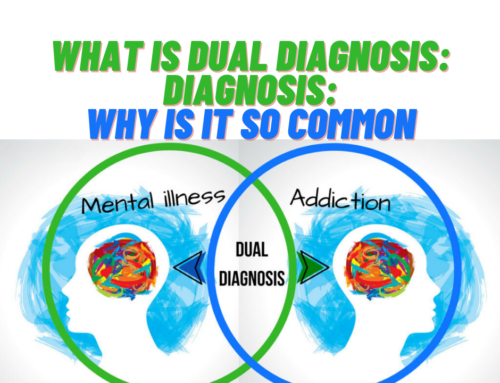Although mental health is just as important as physical health, many people shy away from conversations about their emotions. As a result, there’s a certain stigma around mental health that can discourage people with mental health problems from seeking treatment. One of the best ways to erase this stigma is to talk about mental health regularly. In this guide, you’ll learn how to talk about mental health in a respectful, supportive way.
What Is Mental Health?
Mental health refers to your psychological, social and emotional well-being. Good mental health is necessary for managing your emotions, building relationships with others and learning new things. Your mental health also influences your behavior, which means it can affect your career or your ability to participate in a variety of social activities.
Signs and Symptoms of Mental Health Problems
Some people experience mental health problems that affect their daily functioning. These mental health problems may cause the following:
- Confusion
- Difficulty concentrating
- Excessive worry
- Persistent sadness
- Lack of energy
- Hallucinations
- Paranoia
- Difficulty maintaining relationships
- Substance use
- Excessive anger
- Suicidal ideation
The signs and symptoms of mental illness often depend on which mental health problem a person has. For example, depression typically causes persistent sadness and low energy, while schizophrenia is more likely to cause hallucinations, disorganized thinking and delusions.
Why Mental Well-Being Is Important
Good mental health is important because your mental health affects your thinking, feelings and behavior. A serious mental illness can make it difficult to maintain employment, build positive relationships or learn new things. Mental health problems also affect your ability to cope with stressful circumstances, such as financial difficulties or the loss of a loved one.
End the Stigma
Genetic, environmental and social factors all contribute to the development of mental health problems. Even though this is well-documented, there’s still a stigma around mental illness and some of the symptoms experienced by people with mental health issues. One of the best ways to end this stigma is to talk about mental health regularly. The more you discuss mental health, the more opportunities other people have to learn from your experiences. Follow the tips below to learn how to talk about mental health without making others feel judged.
Avoid Judgment When Talking About Mental Health
When you start talking about mental health, it’s important to do so without judgment. If a family member or friend feels you’re being judgmental, they’ll be less likely to open up about their feelings. The best way to get the ball rolling is to let the other person know you’re there to support them and talk with them as often as necessary. If your friend has a diagnosed mental health problem, you can also let them know you’d like to know more about their symptoms so you can provide the right kind of support.
Stay Calm When Addressing Mental Health Issues
Whether you’re talking with friends or family members, one of the best ways to have a productive conversation about mental health is to stay calm. Unless you’re in immediate danger, do your best to let the other person speak their mind without interrupting them or trying to shift to another topic. If things start to get heated, suggest that you take a break to get something to eat or take a few minutes to gather your thoughts.
Outline Resources Like Treatment
It’s great to offer a support system for your loved one, but only a therapist or psychiatrist can develop a comprehensive treatment plan for managing mental health symptoms and ensuring a mental health problem doesn’t interfere with the ability to hold down a job or build positive relationships. Before you have a conversation about mental health, familiarize yourself with local treatment providers. Make a list of names and telephone numbers to ensure you’re prepared to share the information with your loved one.
Listen and Relate to Personal Experience
Even if you’ve never experienced a chronic mental health problem, it’s important to listen carefully and try to relate your loved one’s experience to your own experiences. People with mental health problems often experience anxiety, sadness and other strong emotions. If you think about a time in your life when you felt anxious or depressed about something, you may find it easier to understand what’s happening to your loved one.
Make the Conversation About Them While Showing Emotional Support
While you’re talking, make sure that the conversation remains focused on your friend or family member. You can share some of your experiences, but don’t share so much that your loved one feels you’re trying to change the subject or shift the focus to your own situation. Acknowledge the other person’s feelings and nod or use your facial expressions to show you’re listening to what they have to say.
Be Honest, Supportive & Helpful
Throughout the conversation, be sure to indicate that you support your loved one. Even if you’ve never experienced a similar situation, you can let the other person know you’re there for them and willing to help them get help for an ongoing mental health problem.
Gently Remind About a Support System
Family members and friends need to know they have a strong support system in place. Depending on the severity of their mental health problems, they may need ongoing treatment, which requires a great deal of support from loved ones. Gently remind your friend or family member that you’re available to provide whatever kind of help they need.
Mental Health Treatment for Family
If you’re discussing mental health problems with a family member, let them know you’re willing to participate in counseling with them if their therapist believes it’s appropriate. In some cases, marriage counseling can help get to the root of certain issues. If you’re supporting a sibling or parent, their treatment provider may recommend family therapy to explore how family dynamics have contributed to their mental health problems. Your participation can help a therapist gain greater insight into the situation.
Mental Health Treatment for Friends
A friend may not want you to attend treatment with them, but there are many other things you can do to show your support. Let them know you’re available to talk about their mental health concerns or offer advice on difficult situations. Another good way to support people is to offer to prepare a meal or provide childcare so they have more time to address their mental health problems.
Why Alta Loma Is a Great Resource for Men’s Mental Health Treatment
Alta Loma helps men with a wide range of mental health problems, including depression, anxiety and schizophrenia. One of the many reasons we’re a great resource is that we offer a coordinated continuum of care. Rather than treating mental health problems for a few days and then leaving men without ongoing support, Alta Loma provides initial stabilization services, residential treatment, extended care and sober living, ensuring every client has the support they need to recover.
If you’re concerned about a loved one, encourage them to contact Alta Loma at (866) 457-3843. We provide comprehensive treatment in Georgetown, Texas near Austin, Texas, making it easier for men to address their mental health needs.



